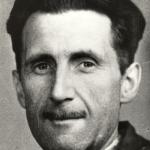The Love of Money: A Practical Spirituality in Zen Buddhism, Judaism, and Christianity
“It is easier for a camel to go through the eye of a needle, than for a rich man to enter into the kingdom of God.”
Mark 10:25
As someone raised a poor people’s Baptist through my childhood and earliest adolescence I heard any number of sermons that repeated that passage about the camel and the eye of the needle. It’s cited in all three of the Synoptic Gospels.
That thought about the rich and the poor popped up when someone on a Facebook feed recently wrote disparagingly of “millionaires.” He meant the rich, of course. And evoked the rich of the gospel, whether consciously or not. Many tropes and assumptions of our culture have roots in the scriptures. As a Zen practitioner, I’ve noticed it become a normative assumption. Although I also notice, not closely examined.
I know the sense is bone deep for me. The sermons I heard in my childhood thundered a message that one cannot serve God and mammon. And that the rich, by which they understood people with more money than it takes to pay the rent and put food on the table and to buy some clothing, were all in imminent danger of their immortal souls facing eternal torture. By my best guess of their working definition rich meant pretty much anyone from middle management up.
And then, of course, there are the millionaires and the play of mind bubbles. I realize that on the coasts, certainly here in Los Angeles, if someone owns a home outright, say they purchased it thirty years ago; they probably fall into the definition of millionaire. That by itself isn’t what I think when I think millionaire. I tried to dig around for when the term originated, and what it meant then.
Etymology Online claims an earliest attestation in 1762. Something in French, which is not cited nor linked. But I have no reason to doubt it. Calculating what that might mean in today’s dollars is tricky. For my purposes the question might be what was a millionaire in 1950 worth? I think that’s a rough benchmark for how people were thinking throughout my childhood. That million dollars in the middle of the last century is about twelve and a half million dollars today. There are several worlds of difference between having a million dollars in real estate, and what was meant in my childhood when someone was using the word millionaire.
I do need to add this. Not that housing isn’t prohibitively expensive in our time and place. Another point that rolls along with the questions of equity and justice, which I find the questions of the rich and the poor symbol. But not to miss that many people, maybe most people who own homes are not in fact rich in any sense that deserves disparagement.
The larger point is not “millionaire.” It’s “rich.” Although what rich is, is another symbol that begs some unpacking. Merriam-Webster’s first definition of the adjective “having abundant possessions and especially material wealth.” In that sense I think of that line attributed to many people, Mae West included, mostly, I notice, women, “I’ve been poor, and I’ve been rich. Honey, rich is better.” Enough, and perhaps more than enough.
But “rich” also can convey a sense of excess. It also is inescapably linked to “poor.” Much wealth is built upon the labor of others, and often built upon their suffering. And it has been so for as long as humans have had history. In every culture there are smaller numbers of people living lavishly at the expense of others. That rich.
Somewhere in his letters, Karl Marx notes how “Money degrades all the gods of man and converts them into commodities.” He also said “The rich will do anything for the poor but get off their backs.” While raised in a nonreligious nominally Christian convert family, Marx’s writings often seem to channel ancestral rabbis exhorting people to turn away from the idols of wealth. He often seems more what I was raised to call an Old Testament Prophet. Expressions of an outrage as old as human oppressions. Which appears to be very old, indeed.
The Jewish tradition has always held a tension between wealth and poverty. It doesn’t condemn wealth. In fact wealth is seen as a blessing. But it calls those with means to not oppress, to be generous, to care for those who are poor, and to relieve their burdens. Proverbs is littered with expressions of care for the poor. Proverbs 14:21 “Those who despise their neighbors are sinners, but happy are those who are kind to the poor.” and 14:31 “Those who oppress the poor insult their Maker, but those who are kind to the needy honor him.”
Much of the books of Amos and Micah are rants against the oppression of the poor by the rich. The Jewish tradition also warns of confusing wealth with godliness. A popular confusion over the ages. The entire book of Job turns on the falsehood that wealth is the result of God’s favor.
Then there is the spiritual tradition of my adult life. Buddhism has two messages regarding money. The one we think of is that of the hard analysis of human hurt. Here we are taught grasping after that which passes away is the doorway to suffering. And everything passes away. People who embrace the monastic path, the ancient vinaya, give up all money and throw their lives into the hands of those of goodwill. If they’re fed, they eat. If not, well, they don’t. In some forms of the vinaya a monastic is not allowed to touch money. An extreme expression of piety that ends up creating servers who carry the money on their behalf.
Not paying attention makes hypocrites of us all.
For those who do not take monastic vows the ethics of money in Buddhism are more complicated. An example of the historic Buddha’s counsel to householders is the Digha Nikaya 31, the Sińgālasutta, which counsels moderation and generosity. It also speaks of guarding the family’s wealth and not squandering it. Functionally for people who’ve not embraced the monastic path, Buddhist wisdom writ large, is to not be seduced by money. Do not let it become a god.
Not unlike another passage from the Christian scriptures. While I’m not a fan of the letters of Timothy, the product of a hand writing in the crazed apocalyptic mystic Paul’s name, but a generation or so later, and dealing largely with matters of institutional life. But here it rings true. 1 Timothy 6:10: “For the love of money is the root of all of evil: which while some coveted after, they have erred from the faith, and pierced themselves through with many sorrows.”
People commonly misquote it as “money is the root of all evil.” The turning point is where do you give yourself? What do you love? What matters? And what matters most? Two things, not one or the other. It’s all perspective.
Speaking of perspective. Me. I was raised poor. Not working class, poor. Constantly moving. Meals came, but if hot dogs came with the macaroni and cheese, it was special. Memories of my mother’s shame when my father was in jail and she found shelter for herself and her children in an unwed mother’s home. The shame is the thing that most clings to me, all these years later.
I’ve been a monastic. I’ve been poor. I’ve not been rich, but I have lived the last thirty or more years of my life middle class. American middle class. While I respect the full renunciation of the monastic, and the apocalyptic renunciation of Jesus and (some) of his followers, I find that middle way of the Jewish tradition, that middle way of the Buddhist tradition most helpful.
Money, in and of itself, is not the problem. Wealth need not be the problem. Although it can be. We need to be careful.
Missing that point the money does need to be attended to, in general leads to personal difficulties. And, as maybe Mae West said, poor isn’t a good thing. Not involuntary poverty. It’s just more suffering.
So. Back to that quote attributed to Jesus. The one about a camel and a rich man and the eye of a needle. On the one hand a straight out statement. If you’re rich you can’t achieve heaven. On another, perhaps we find a koan. One of those assertions about the real bound up intimately with an invitation.
As the Buddha of history suggested in the Sińgālasutta, prudence, and attention to earthly needs, is an obligation. And, and this is important, to ignore that leads to hurt. Hurt for oneself, and one’s family, and for the greater world.
And. Because.
We are all of us tied up together. Preacher Casey was right. We are all one big soul. We and this blessed planet. Not one, exactly. But, not two, precisely, either.
And. With that.
One critical point. Any economic system, any nation, any business that ignores our radical interdependence is satanic. To use a Christian term. Those “millionaires,” those “rich,” the people who worship money over everything else, who ignore the calls of the poor, the needs of the world, are to be opposed. They bring no good the world.
And. The most important point. Finding our middle way is the invitation. Living full in this world without becoming ensnared. Living full. And when the time comes, let go. In fact living, hugging, holding, and letting go. Not one. Not several.
As my old friend the Zen teacher Grace Schierson said, “I keep all my vows.”
The koan revealed.
Anything else is missing some big points.
Two cents on a Monday…














